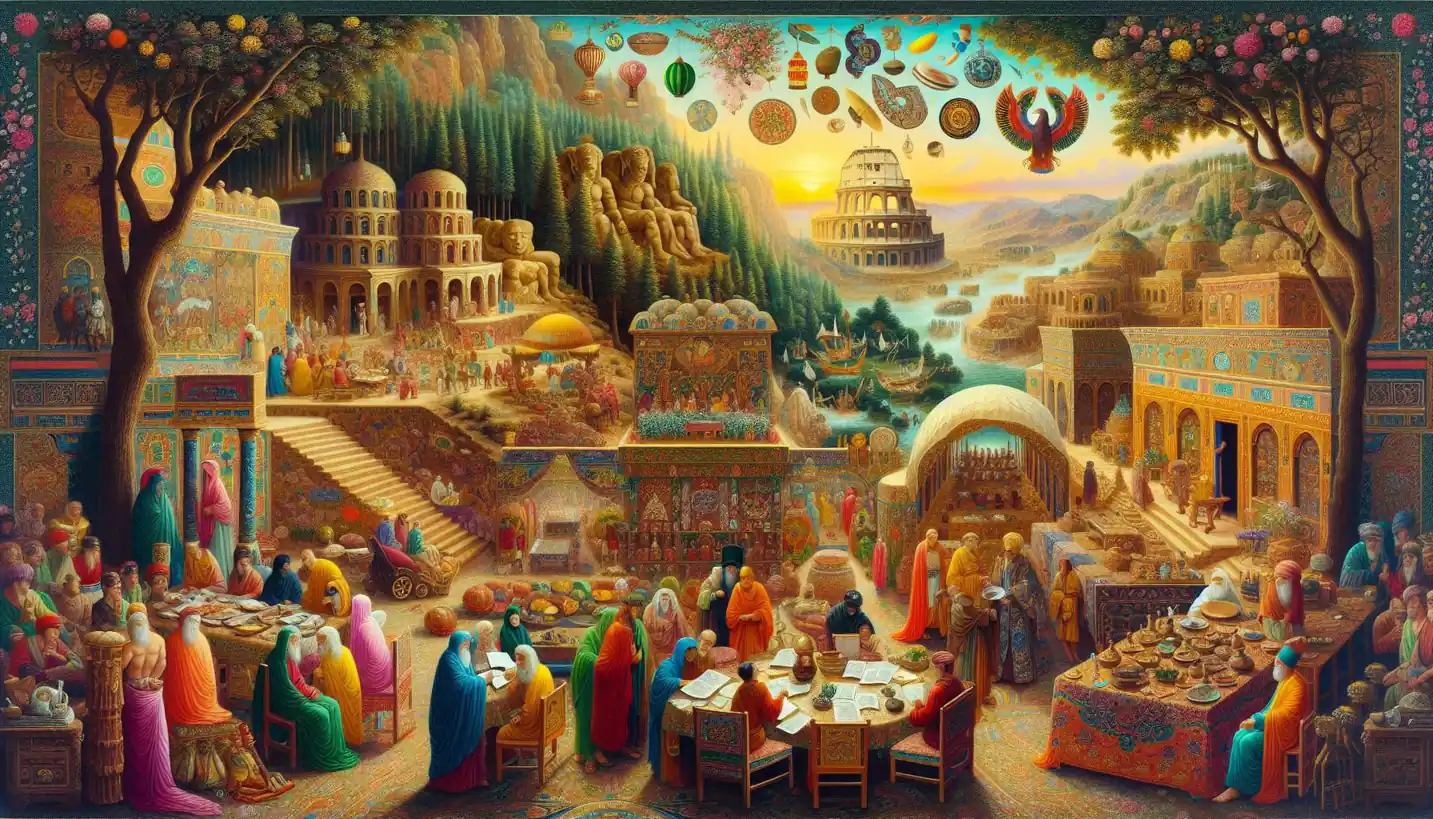· History · 4 min read
Akkadian Empire: Rise and Glory of Ancient Mesopotamia
The Akkadian Empire was a beacon of power in ancient Mesopotamia. Journey through its rise and glory to uncover historical tales of conquest and culture.

Let’s dive into the fascinating story of the Akkadian Empire, a cornerstone in ancient history. Picture the bustling cradle of civilization, Mesopotamia. Around 2300 BCE, this region witnessed the rise of the Akkadian Empire, which played a pivotal role in shaping world history. This empire wasn’t just any ancient empire—it was one of the first to unite cities and cultures under a single ruler.
The Birth of the Akkadian Empire
Mesopotamia, nestled between the Tigris and Euphrates Rivers, was home to innovative city-states like Sumer. Despite their advancements, these city-states were often at odds with each other. Enter Sargon of Akkad, a visionary leader who transformed this fragmented landscape into a unified empire.
Sargon’s story is nothing short of legendary. He rose from humble beginnings, supposedly discovered as a baby floating in a basket down a river, much like the story of Moses. Through cunning and military prowess, he managed to conquer the Sumerian city-states, paving the way for the Akkadian Empire.
Expansion and Administration
Once Sargon had control, the Akkadian Empire expanded rapidly. It stretched from the Persian Gulf up to the Mediterranean Sea. Imagine an empire with diverse cultures and languages. Sargon and his successors cleverly managed this diversity by establishing a centralized government. They appointed loyal administrators to govern different regions, much like modern-day governors, ensuring stability across the empire.
This administrative innovation allowed the Akkadians to exert control without directly ruling every city-state. They also implemented a standardized system of weights and measures, facilitating trade and communication across vast distances. These strategies not only held the empire together but also laid the groundwork for future empires.
Akkadian Language and Culture
An intriguing aspect of the Akkadian Empire was its language and culture. Akkadian quickly became the lingua franca of commerce and governance. This shift from Sumerian to Akkadian marked a significant cultural change. The Akkadian language influenced various aspects of life, from literature to administration.
Literature flourished under Akkadian reign, with epic tales like the “Epic of Gilgamesh” capturing imaginations. These literary works not only entertained but also offered insights into human nature and the struggles of kingship and mortality, themes still relevant today.
Challenges and Decline
Like any great empire, the Akkadian Empire faced its share of challenges. The vast empire was difficult to manage, and resources were stretched thin. Internal strife and rebellion became common, weakening the central authority.
Nature itself turned against the Akkadians. Scholars believe that a severe drought, possibly linked to climate change, struck Mesopotamia during the Akkadian period. Crops failed, leading to food shortages and societal unrest. As these pressures mounted, the once-mighty empire began to crack.
Around 2150 BCE, the Gutians, a mountain people, invaded from the northeast. This invasion further destabilized the region, marking the end of the Akkadian Empire’s supremacy. Yet, this wasn’t the end for the region. The fall of the Akkadian Empire paved the way for the rise of the Babylonian Kingdom, illustrating the cycle of rise and fall that defines human history.
Lasting Impact and Legacy
Although the Akkadian Empire eventually fell, its impact endured. It set a precedent for future empires in terms of governance and cultural integration. The administrative practices and cultural developments introduced by the Akkadians influenced subsequent empires in Mesopotamia and beyond.
Moreover, the Akkadian Empire showcased the power of unification despite diversity. Its story echoes in modern times as we navigate the challenges and benefits of globalization. The empire’s legacy reminds us of the importance of innovation, adaptation, and resilience in the face of adversity.
The Akkadian Empire’s Place in History
Why should we care about the Akkadian Empire today? Because it was a pioneering force in the ancient world. It demonstrated unprecedented unity and innovation. As the first known empire in history, it laid the groundwork for how empires could be structured, governed, and interact with diverse cultures.
The myths and stories from this era continue to captivate historians and enthusiasts alike. By exploring the Akkadian Empire, we tap into the roots of civilization and gain a deeper understanding of human dynamics and leadership.
Reflections on Ancient Empires
As we reflect on the Akkadian Empire, it’s fascinating to see how ancient history shapes our present and future. The rise and fall of such empires warn us of the delicate balance of power, resources, and nature. They remind us of our shared human experience across millennia.
What can we learn from the Akkadians? Perhaps it’s their adaptability and how they embraced differences for the greater good. This ancient tale resonates with today’s world, where unity amidst diversity remains a goal we continue to strive for.
In essence, the Akkadian Empire stands as a testament to human ingenuity, ambition, and resilience. Its story invites us to ponder how we can harness these qualities in our own lives and societies, fostering a world that thrives on cooperation and harmony.



